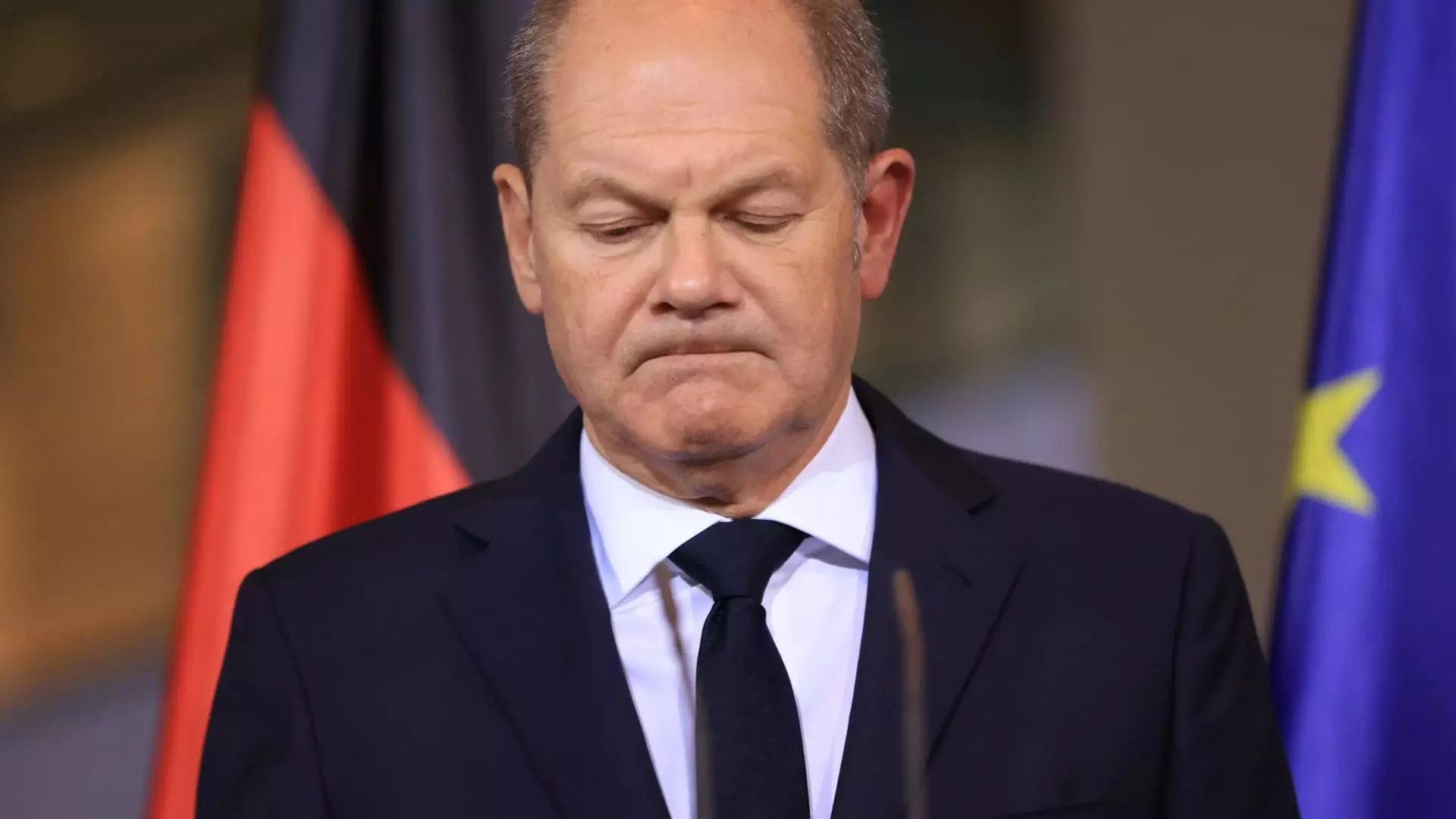Germany’s economy stands as a linchpin in the European financial system, often viewed through the lens of its robust export market and stable industry. However, the nation’s indicators have recently depicted a troubling scenario. Preliminary estimates indicate that, after narrowly avoiding a technical recession in the third quarter of the year—growing by a marginal 0.2% following a decline of 0.3% in the previous quarter—the outlook continues to dim. The German economy ministry’s reassessment in October, revealing anticipations of contraction instead of growth for the current year, raises red flags about the future economic trajectory.
Key metrics such as Germany’s Composite Purchasing Managers’ Index (PMI) further substantiate this bleak outlook. Although slightly elevated in October, the PMI remains entrenched in contraction territory, a reflection of underlying weaknesses in both manufacturing and services. As domestic growth falters, there emerges a persistent concern about external factors potentially exacerbating these economic issues.
The election of Donald Trump as U.S. President portends significant challenges for Germany’s already precarious economic situation. Moritz Schularick, the president of the Kiel Institute for the World Economy, articulates a strong sentiment among many economists—that Trump’s presidency might represent one of the most daunting economic periods in Germany’s post-war history. He emphasizes that the country is grappling not only with domestic structural issues but also with foreign trade and security policy challenges that require urgent attention and preparation.
Historically reliant on exports, Germany’s economic fabric could face severe strains under a Trump administration that may impose tariffs on imports, significantly impacting German goods entering the U.S. market. According to the German statistics office, the U.S. has solidified its role as a critical trading partner, overtaking China earlier this year, with approximately 9.9% of German exports directed towards the U.S. This evolving dynamic raises concerns about increased vulnerability in key sectors.
The specter of tariffs—potentially reaching as high as 20% for various imports—has raised alarm bells among German exporters. The ifo Economic Institute has warned that such sweeping measures could lead to significant losses, estimating a potential economic impact of EUR 33 billion on the German economy and a decline in exports to the U.S. by about 15%. The auto and chemical industries, key pillars of Germany’s economic strength, stand to suffer the most from any retaliatory tariffs implemented by the U.S.
This impending scenario mandates that Germany and the broader European Union adopt proactive strategies. As the U.S. appears poised to distance itself from international cooperation, leaders like Lisandra Flach of the ifo Centre for International Economics stress the urgency for Germany and the EU to strengthen their positions through deeper integration and coordinated responses, including credible retaliatory measures against the United States.
Compounding these economic challenges is the political turmoil currently unfolding within Germany. The recent dismissal of Finance Minister Christian Lindner by Chancellor Olaf Scholz has led to a fracturing of the coalition government, raising questions about Germany’s political stability and its capacity to respond effectively to external economic threats. In the midst of this political upheaval, senior leaders have extended congratulations to Trump, signaling an ambiguous stance towards the incoming administration.
This internal discord comes at a critical juncture, as the previous administration expressed a willingness to engage diplomatically with the U.S. and manage potential trade conflicts. Lindner’s remarks about needing to convince the future White House that a trade conflict with the EU would not serve American interests emphasize the pressing need for cohesive strategy as the country navigates an uncertain economic future.
While Donald Trump’s ascension may herald a period of economic turbulence for Germany, proactive measures and strategic political unity could serve as vital tools for mitigating the fallout. The interplay of domestic economic weaknesses, the complexities of international trade relations, and evolving political landscapes require not only vigilance but also calculated responses to safeguard Germany’s economic stability. Leaders must act swiftly and decisively to navigate these turbulent waters, ensuring that the country is not simply responding to challenges but also anticipating changes in the global economic environment. Without such foresight, the repercussions of Trump’s presidency could extend far beyond Germany’s borders, affecting the broader European economy and international relationships for years to come.


Leave a Reply